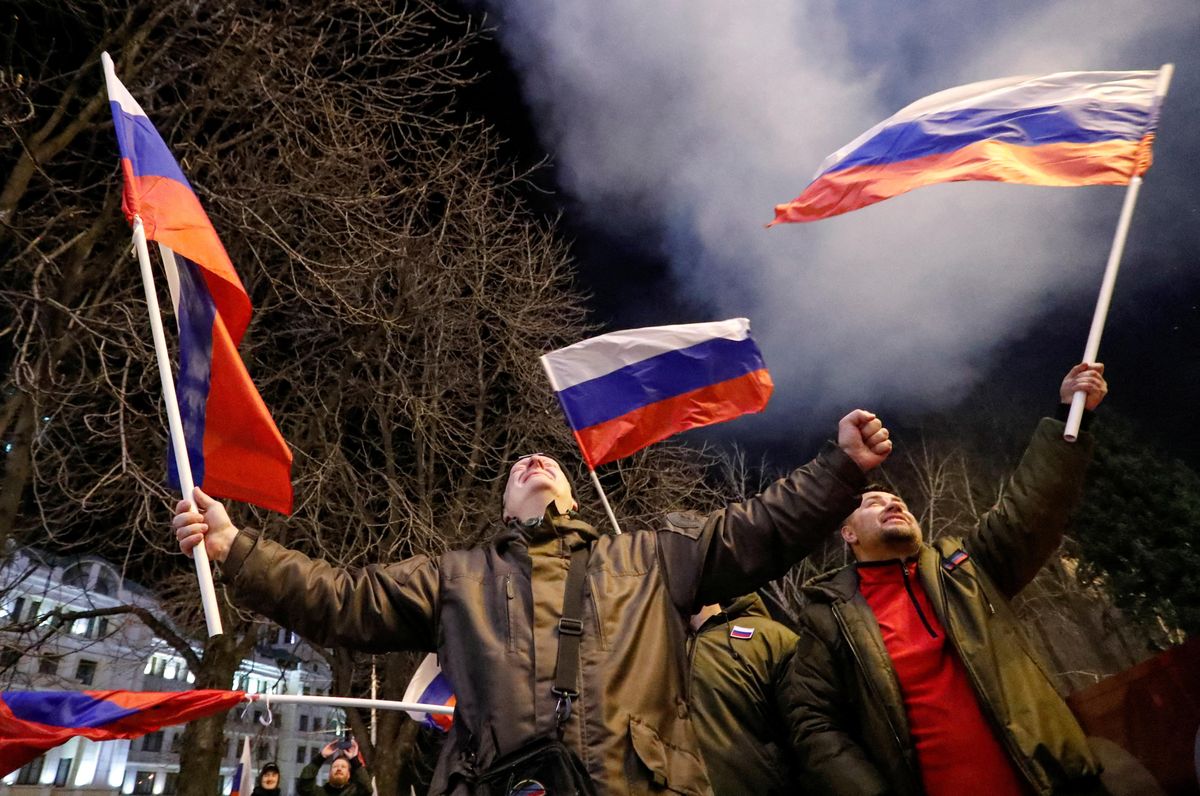In the space of just two hours on Monday, Russian President Vladimir Putin dramatically escalated the course of the Russia-Ukraine crisis. He unilaterally recognized the independence of the separatist regions of Eastern Ukraine, vowing to send Russian “peacekeepers” into the area, and delivered a ferocious 40-minute speech that, among other things, rejected the idea of Ukraine as an independent country altogether.
What does it mean, and what comes next?
The moves effectively buried any prospects for the so-called Minsk accords (a 2015 peace framework that called for significant Donbas autonomy and power within Ukraine in exchange for Russia giving control of the eastern border back to Kyiv). Any remaining hope of a diplomatic solution to the crisis will now have to be based on an entirely new set of agreements that do not yet exist.
How will the West respond? After weeks of careful US-led diplomacy, European capitals and Washington had agreed that any “invasion” of Ukraine would result in “swift and severe” sanctions on the Russian economy. But does the move into the Donbas — already in effect a Russian puppet state since 2014 — meet that threshold?
The most significant move so far has come from Germany, which on Tuesday officially suspended approval for the Nord Stream 2 Russia-Germany gas pipeline.
More action is expected later in the day. The US is set to supplement an initial round of sanctions against the Donetsk and Luhansk People’s Republics with something more substantive today, while British PM Boris Johnson -- who leads a country famously friendly to wealthy Russians -- has promised a "barrage" of sanctions. The EU has pledged "unity" in its own sanctions response.
Western capitals have to walk a fine line, responding in a way that is forceful enough to be taken seriously by the Kremlin, while also keeping some powder dry in case Putin goes further.
Speaking of which, how far will Putin go? Formally lopping off a chunk of Ukraine -- drastic as it is -- doesn't address Putin's stated concerns about NATO expansion or Ukraine's sovereignty. That means it's unclear if he made the move simply to increase his leverage ahead of a fresh round of diplomacy, or as a prelude to a wider invasion of Ukraine.
One important detail is that Moscow is being deliberately ambiguous about whether it has recognized the independence only of the areas held by the separatists, or whether it's laying claim to broader swathes of eastern Ukraine that are still under Kyiv's control. Russia's foreign ministry says it's the limited recognition, but Putin's spokesman was vaguer.
Meanwhile, on the ground, the Russian military buildup continues. Some 30,000 Russian troops who recently went to Belarus for military drills are now set to stay there, and the US estimates that Russia has almost doubled its troop presence in the region in less than a month, with some 190,000 troops deployed around Ukraine.
What about that US-Russia summit? It seems like just yesterday that France had brokered a new US-Russia summit “in principle.” Wait, that was yesterday. But Washington had one condition: that Russia not invade Ukraine. Moscow's foreign ministry says it's still ready to meet with the US to plan a fresh Biden-Putin meeting, but there's no indication yet from the White House on whether they're still game. Expect more on this later Tuesday.
Spare a thought for Ukrainian President Volodymyr Zelensky. Responding militarily to the separatist republics’ “independence” could push Putin — who seems eager to be provoked – into a wider invasion. But Zelensky also can’t stand by idly as Russia gobbles up another chunk of his country unopposed. In a wee-hours address on Tuesday, he told his people he would “cede nothing” but called for a fresh round of diplomacy, including a multilateral meeting with Russia.
“It is very important now,” he said, “to see who is our true friend and partner.”







